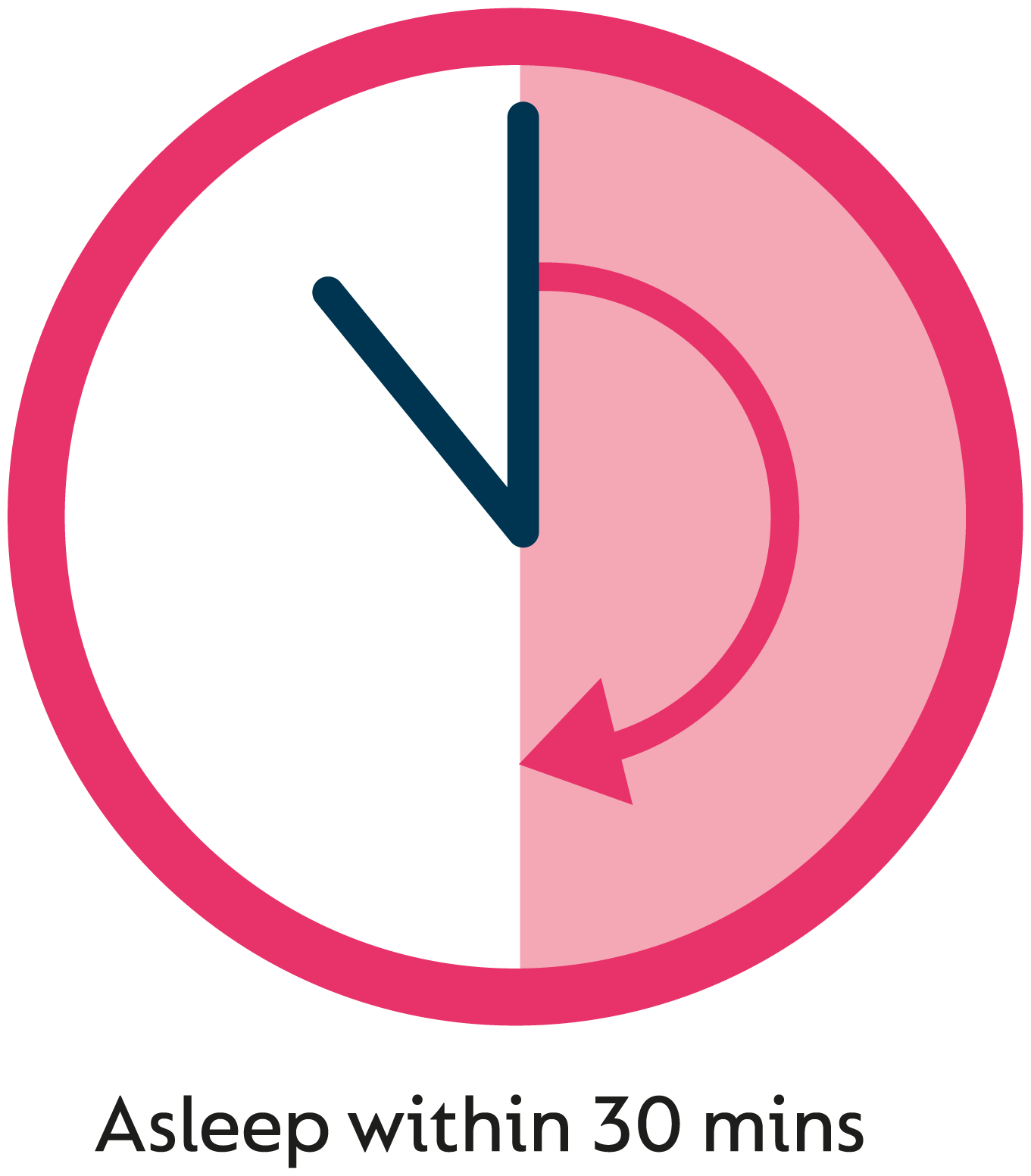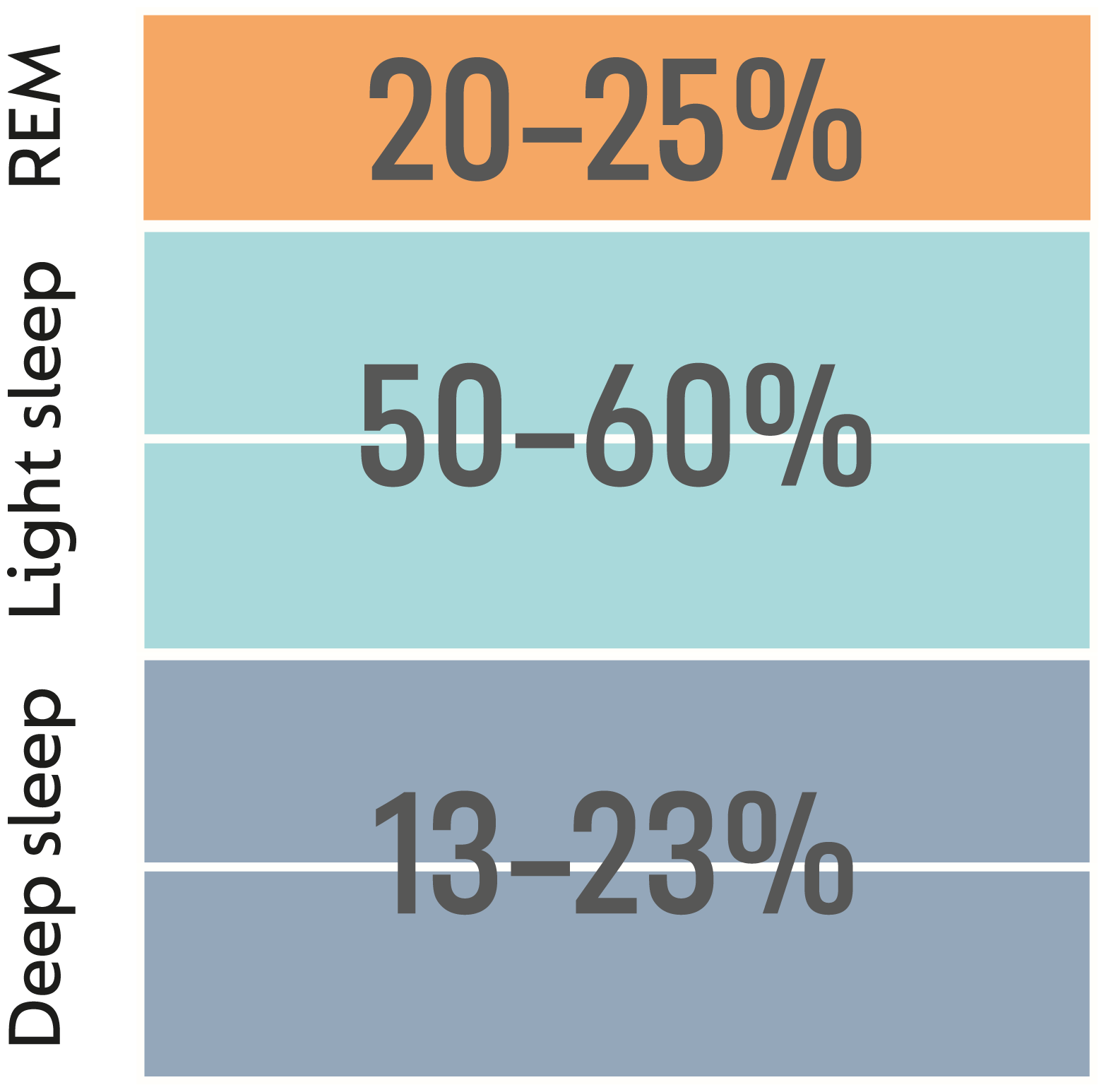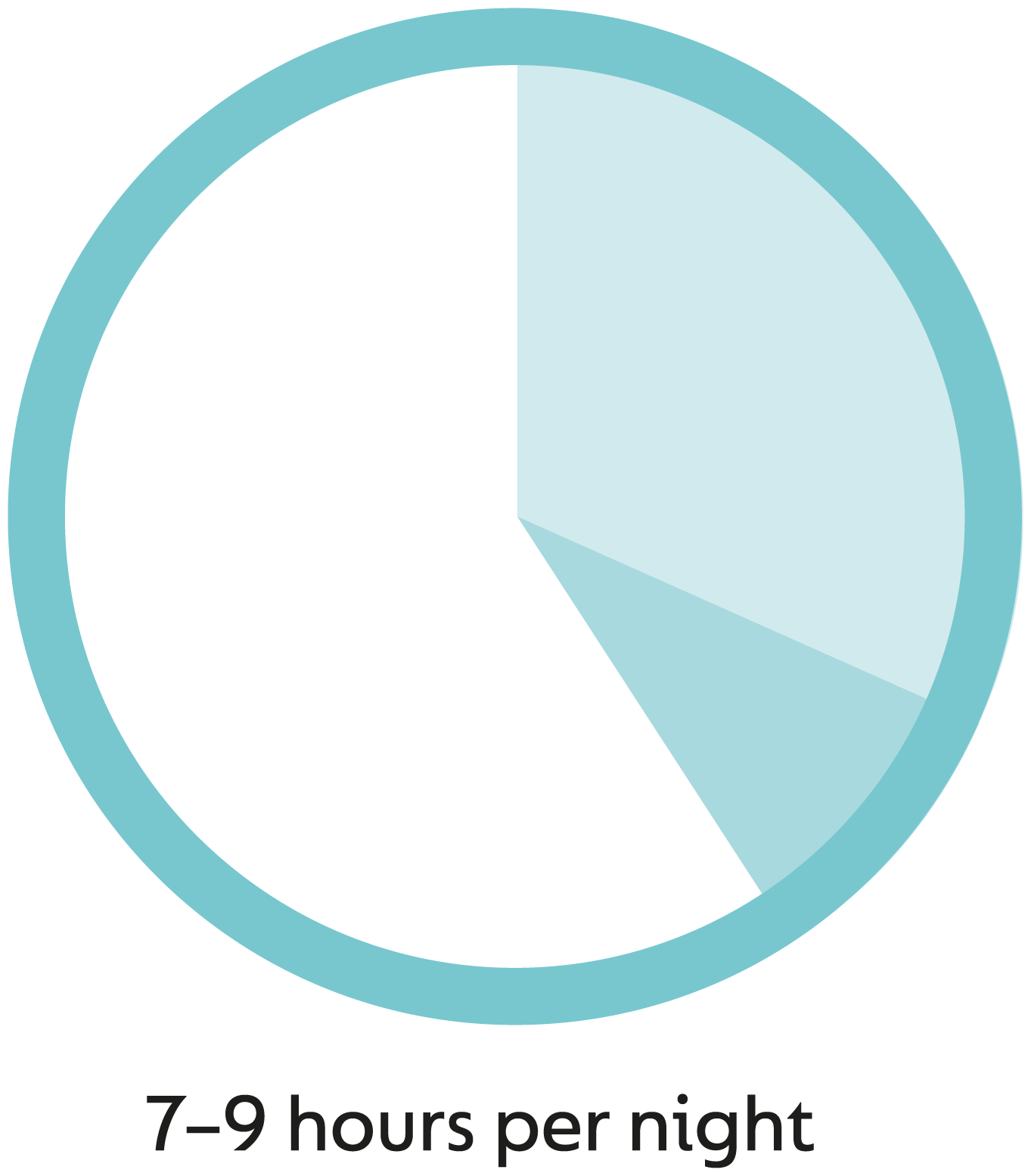Good sleep, bad sleep
Aiming for perfect sleep every night is an unrealistic goal; we all have the odd bad night. When it comes to assessing whether the sleep you get is “good,” it’s just as much about quality as quantity.
Some lucky people never give their sleep a second thought, but for anyone struggling with their slumber, this is an almost unbelievable concept. For them, worrying about getting a “good” night’s sleep is an ever-present concern.
So what exactly does good sleep look like? Sleep needs are as individual as your fingerprint; genetics, lifestyle, health conditions, and age all dictate the sleep you need to be at your best the following day. By far, the best benchmark of good sleep is how well-rested you feel when you wake up. After a good night’s sleep, you should feel restored, alert, and ready to go. If this is you, then chances are you’re getting good sleep—including enough Stage-3 sleep, which is where the majority of your brain and body’s repair functions take place.
If you have difficulty falling asleep, problems staying asleep, or you often wake feeling tired and sluggish, it could be a sign of insomnia, but don’t panic. From time to time, each of us will experience a bad night—it’s completely normal. Remember: biologically, we know how to sleep. Many problems are temporary and have a simple solution, and some will resolve themselves without much intervention. Some sleep quirks, such as sleepwalking, are not a major cause for concern. Other issues such as teeth grinding are problems that can be rectified with appropriate treatment. However, there are a few issues that should always be followed up, as they may point to more serious conditions. Loud snoring or gasping for air in your sleep, sleep fragmentation (repeated interruptions during the night that lead to excessive tiredness during the day), or bouts of sleeplessness lasting more than four weeks will all require professional advice. A list of what a sleep specialist looks for when assessing the quality of your sleep is on the opposite page. Use this as a starting point to rate your sleep, but don’t get too hung up on the results. This book will show you plenty of ways you can get the sleep you deserve if you’re not quite there yet.
“Good sleep” assessment
Sleep clinicians assess the quality of a patient’s sleep by applying various criteria. These can be broken down into the following four categories:
• Sleep latency: The time you take to fall asleep. You should ideally be asleep within 30 minutes of going to bed; if not, this suggests you aren’t quite ready for sleep. Sleep trackers can be unreliable when it comes to measuring sleep latency; for instance, if you are reading a book, it may assess, from your lack of movement, that you are already asleep.

n Double-tap image to read the labels
• Time spent in different sleep phases: On average, 50–60 percent of the night should be spent in light sleep, 13–23 percent in deep sleep, and 20–25 percent in REM. However, as you get older, you need less deep sleep. Spending the correct amount of time in each stage is more likely when you get a stretch of uninterrupted sleep.

n Double-tap image to read the labels
• Total sleep time: Most adults need between 7–9 hours of sleep. This changes as you age, as does whether this amount is consecutive or a larger chunk of sleep supplemented with a nap. The key is how you feel the next day; the right amount and type of sleep for your personal needs should leave you feeling good when you wake.

n Double-tap image to read the labels
• Sleep efficiency: This is the scoring a specialist will use to determine your quality of sleep. You can work yours out by dividing the amount of time spent asleep (in minutes) by the total amount of time in bed (in minutes), then multiplying this by 100. A sleep efficiency of 85 percent or higher suggests you are sleeping well, but slight fluctuations outside of this are normal.

n Double-tap image to read the labels
